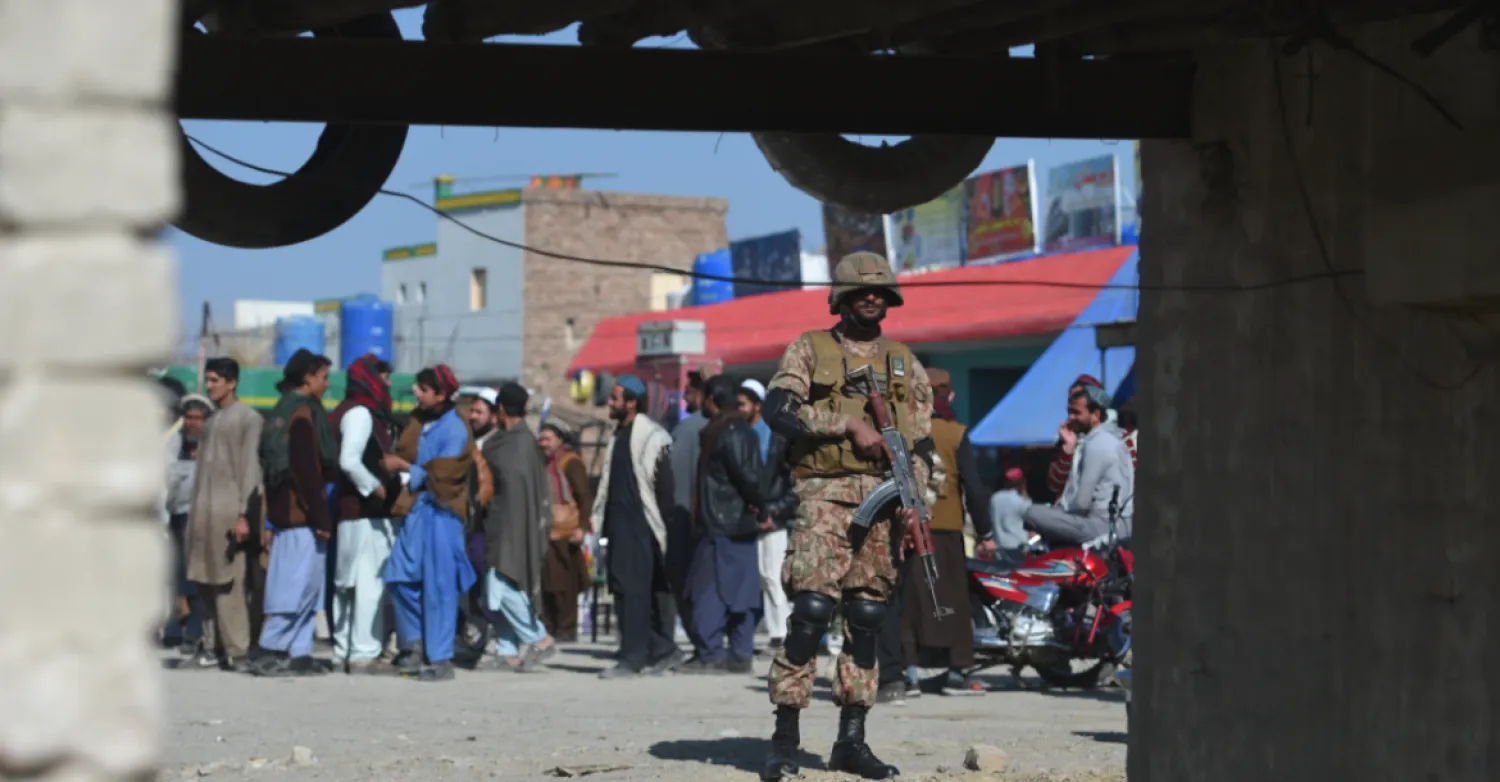Pakistan's military said security forces cleared two areas in a southwestern province of separatist militants after they attacked two army camps, leaving nine soldiers dead and six others wounded. Twenty militants were killed in intense, hours-long firefights and follow-up operations, it said.
The military statement issued late Saturday said militants attacked security forces camps in Baluchistan province in the districts of Naushki and Panjgur late Wednesday and both attacks were eventually repulsed.
A recently formed separatist group, the Baluchistan Nationalist Army, claimed responsibility for the attacks in a Twitter post, The Associated Press said.
The military said nine attackers were killed in Naushki, while four troops, including an officer, were killed. It said in Panjgur, security forces repulsed the attack after an intense exchange of fire and the attackers fled the area.
Security forces began an operation to hunt down the fleeing attackers and a curfew in the areas was imposed.
Four fleeing militants were killed in Panjgur, while four who were hiding elsewhere were killed in a Saturday operation when they refused to surrender, the military said. It said three other militants linked to the attacks were killed in the district of Kech on Friday. Five soldiers were killed and six others wounded in follow-up operations.
A spokesman for the Baluch Liberation Army, a separatist group that operates under the umbrella of the Baluchistan Nationalist Army, said its Panjgur and Naushki offensive came to an end after more than 70 hours.
“After the martyrdom of all sixteen suicide-attackers of the Majeed Brigade of the Baluch Liberation Army, ‘Operation Gunjal’ reached its conclusion,” said Jaend Baluch, the purported spokesman, in a message to reporters on WhatsApp.
Baluch said nine of the men attacked the Frontier Corps camp in Naushki and six stormed into the Panjgur camp.
Authorities say they have quelled an insurgency launched by Baluch separatists demanding independence from Pakistan in the southwestern province that borders Iran and Afghanistan. However, attacks on security forces and their installations have persisted. Separatists and militants have regularly staged attacks in Baluchistan in recent years. Last week, 10 soldiers were killed in an attack on a security post in the province.
The militant Pakistani Taliban group — Tehrik-e-Taliban Pakistan, or TTP — also has a presence in Baluchistan. It is an umbrella group that is separate from the Afghan Taliban.
In a separate statement Sunday, the military said security forces killed a would-be suicide bomber from the Pakistani Taliban in the district of Tank in northwestern Khyber Pakhtunkhwa province. The killing was part of a continuing operation to eliminate militant accomplices in the area.
Separately, security forces arrested a militant during a raid at a hideout in in the Sarwakai area of the South Waziristan tribal district. The military statement said militant Allah Noor was trying to escape wearing woman's burqa to hide his identify.
In the Makeen area of South Waziristan, troops seized arms, ammunition and communications gear and arrested four people who were transporting them.









